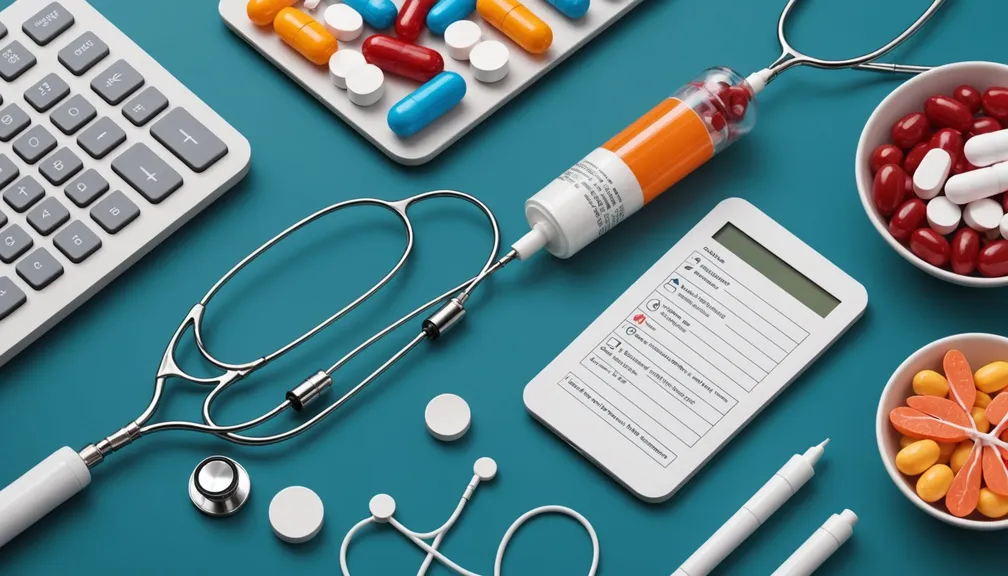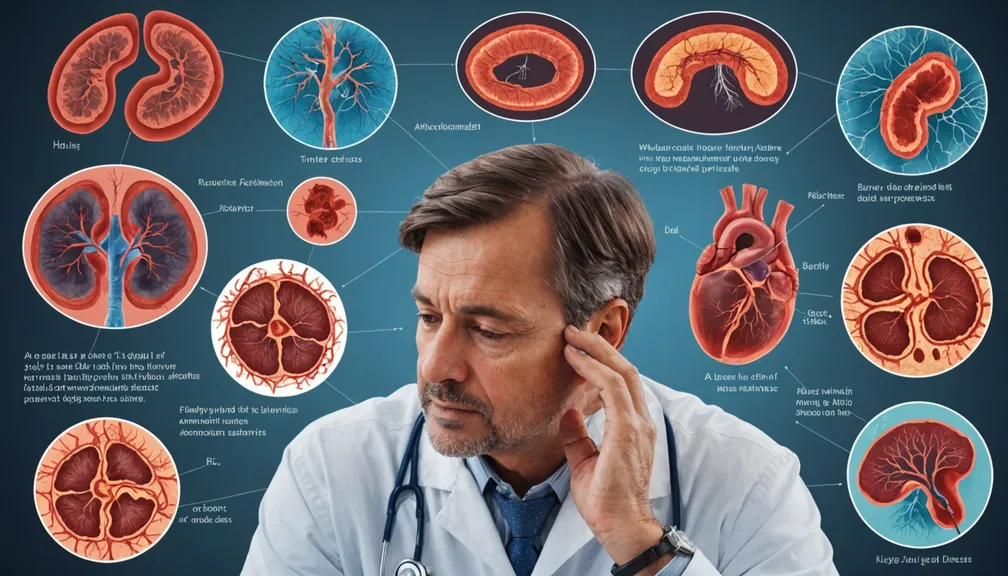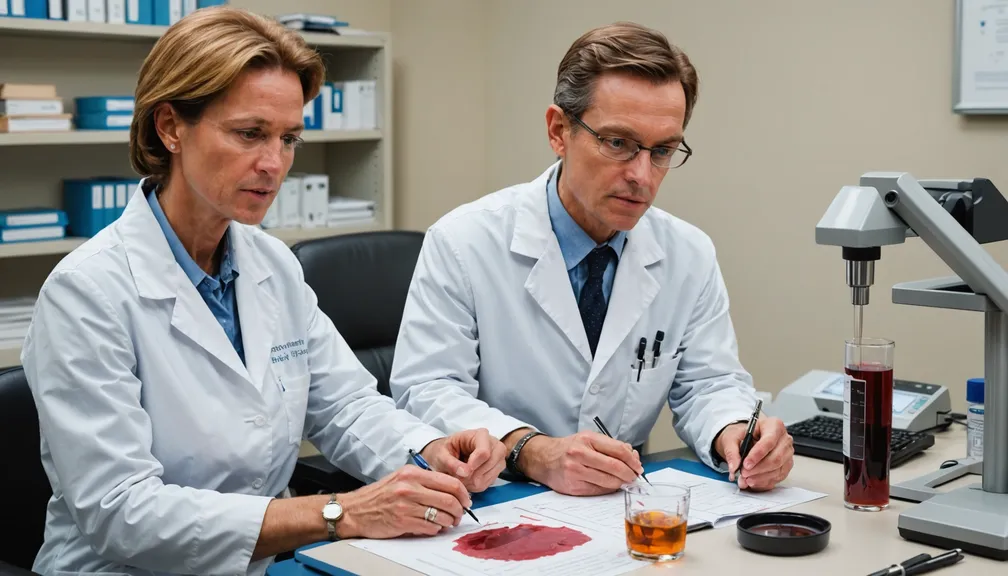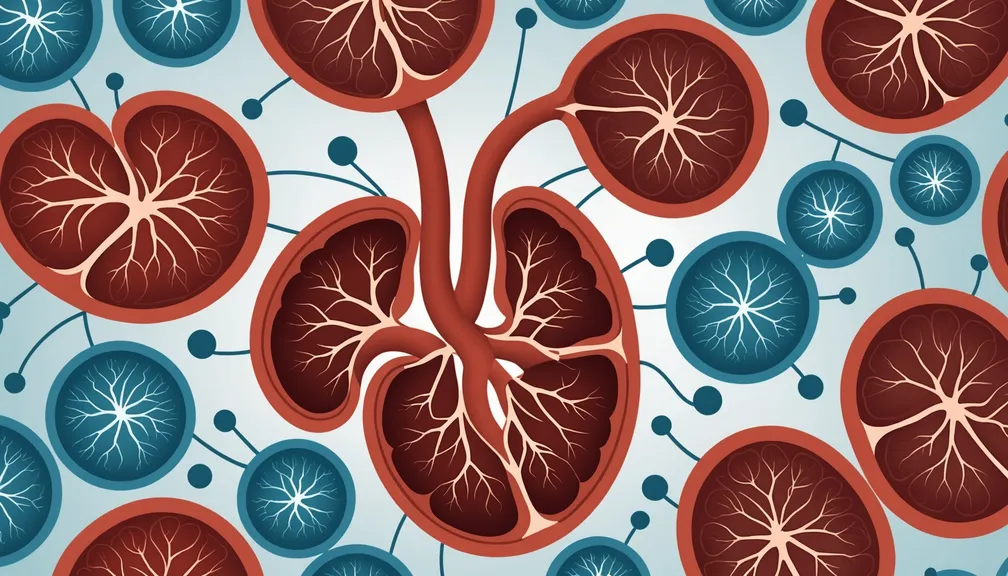Understanding Kidney Function and Health
Overview of Kidney Function
What Do Kidneys Do?
Your kidneys are vital organs that play a crucial role in maintaining your overall health. They perform several important functions, including:
- Filtering Blood: Removing waste products and excess fluids from your bloodstream.
- Balancing Electrolytes: Regulating levels of minerals like sodium, potassium, and calcium.
- Regulating Blood Pressure: Controlling the amount of fluid in your body and adjusting hormone levels.
- Producing Hormones: Helping in the production of red blood cells and maintaining bone health.
Importance of Healthy Kidneys
Healthy kidneys ensure that your body functions smoothly by:
- Maintaining Fluid Balance: Preventing the buildup of harmful substances.
- Supporting Metabolic Processes: Facilitating energy production and nutrient utilization.
- Protecting Against Infections: Filtering out bacteria and toxins that can harm your body.
Understanding Rare Kidney Diseases
What Makes a Kidney Disease Rare?
A kidney disease is considered rare when it affects a small percentage of the population. These conditions often have unique causes, symptoms, and treatment protocols that distinguish them from more common kidney disorders.
Common Rare Kidney Diseases
- Alport Syndrome: A genetic condition characterized by progressive loss of kidney function and hearing loss.
- Atypical Hemolytic Uremic Syndrome (aHUS): A disorder that causes abnormal blood clots to form in small blood vessels, leading to kidney damage.
- Polycystic Kidney Disease (PKD): An inherited disorder causing numerous cysts to grow in the kidneys, impairing their function.
- Goodpasture Syndrome: An autoimmune disease where the body attacks its own kidneys and lungs.
Symptoms and Warning Signs
Early Signs to Watch For
Recognizing symptoms early can lead to timely treatment. Common early signs of rare kidney diseases include:
- Unexplained Fatigue: Feeling unusually tired without a clear reason.
- Swelling: Puffiness in the hands, feet, or around the eyes.
- High Blood Pressure: Elevated blood pressure readings without an obvious cause.
- Changes in Urination: Increased frequency, especially at night, or changes in the color and consistency of urine.
When to Seek Medical Help
If you experience any of the following, it's important to consult a healthcare professional:
- Persistent changes in urination patterns.
- Severe or unexplained swelling.
- Sudden weight gain due to fluid retention.
- Shortness of breath or chest pain.
- Unexplained anemia or frequent infections.
Diagnosis and Testing
How Rare Kidney Diseases Are Diagnosed
Diagnosing rare kidney diseases often involves a combination of medical history evaluation, physical examinations, and specialized tests. Early and accurate diagnosis is essential for effective management.
Types of Tests and Procedures
- Blood Tests: Measure levels of waste products and electrolytes.
- Urine Tests: Detect abnormalities in urine composition.
- Imaging Studies: Ultrasound, CT scans, or MRI to visualize kidney structure.
- Genetic Testing: Identifies inherited conditions like Alport syndrome.
- Biopsy: A small sample of kidney tissue is examined for signs of disease.
Treatment and Management
Treatment Options
While rare kidney diseases can be challenging to treat, several approaches can help manage symptoms and slow disease progression:
- Medications: To control blood pressure, reduce proteinuria, and manage anemia.
- Plasma Exchange Therapy: Especially for conditions like aHUS.
- Immunosuppressive Therapy: For autoimmune-related kidney diseases.
- Dialysis: To perform the filtering functions of the kidneys when they can no longer do so effectively.
- Kidney Transplant: In cases of end-stage kidney disease.
Lifestyle Changes for Kidney Health
Adopting a healthy lifestyle can support kidney function and overall well-being:
- Healthy Diet: Low in salt, potassium, and phosphorus as recommended by your healthcare provider.
- Regular Exercise: Maintains overall health and helps control blood pressure.
- Avoid Smoking: Reduces the risk of kidney damage and other health issues.
- Limit Alcohol Consumption: Prevents additional strain on the kidneys.
Supporting Your Kidneys
Diet and Nutrition
Proper nutrition plays a key role in managing kidney health:
- Balanced Diet: Incorporate a variety of fruits, vegetables, whole grains, and lean proteins.
- Monitor Protein Intake: Excessive protein can burden the kidneys.
- Stay Hydrated: Proper hydration supports kidney function but follow your doctor's advice on fluid intake.
- Limit Processed Foods: Reduce intake of foods high in sodium and unhealthy fats.
Exercise and Physical Activity
Staying active helps maintain a healthy weight and blood pressure:
- Regular Exercise: Aim for at least 150 minutes of moderate-intensity activity each week.
- Choose Low-Impact Activities: Such as walking, swimming, or cycling to reduce stress on the body.
- Consult Your Doctor: Before starting any new exercise regimen, especially if you have a kidney condition.
Managing Blood Pressure and Diabetes
Controlling underlying conditions is crucial for kidney health:
- Monitor Blood Pressure: Keep it within the target range recommended by your healthcare provider.
- Manage Blood Sugar Levels: Essential for preventing diabetic kidney disease.
- Follow Treatment Plans: Adhere to prescribed medications and lifestyle recommendations.
Medical Professionals and Support
Types of Doctors and Health Professionals Involved
Managing a rare kidney disease often requires a multidisciplinary team:
- Nephrologist: A kidney specialist who oversees treatment and management.
- Primary Care Physician: Coordinates overall healthcare and monitors general health.
- Genetic Counselor: Provides information and support for inherited kidney conditions.
- Dietitian/Nutritionist: Offers dietary guidance tailored to your kidney health needs.
- Social Worker: Assists with emotional support and navigating healthcare services.
- Pharmacist: Ensures safe and effective use of medications.
How They Can Help
Each healthcare professional plays a specific role in your care:
- Nephrologist: Diagnoses kidney conditions, develops treatment plans, and monitors kidney function.
- Dietitian/Nutritionist: Creates personalized meal plans to support kidney health.
- Genetic Counselor: Helps you understand the genetic aspects of your condition and implications for family members.
- Social Worker: Provides resources for coping with the emotional and practical challenges of a kidney disease.
- Pharmacist: Advises on medication management and potential interactions.
Living with a Rare Kidney Disease
Coping Strategies
Managing a rare kidney disease involves both physical and emotional adjustments:
- Stay Informed: Educate yourself about your condition and treatment options.
- Communicate Openly: Share your feelings and concerns with family, friends, and healthcare providers.
- Set Realistic Goals: Focus on what you can control and set achievable health and lifestyle goals.
- Seek Support: Join support groups or connect with others facing similar challenges.
Support Networks
Building a strong support system can enhance your quality of life:
- Family and Friends: Provide emotional support and assistance with daily activities.
- Support Groups: Offer a community of individuals who understand your experiences.
- Healthcare Team: Your doctors and nurses are resources for medical advice and treatment guidance.
- Mental Health Professionals: Counselors or therapists can help address emotional and psychological needs.
Managing a rare kidney disease requires a comprehensive approach that includes understanding your condition, working closely with healthcare professionals, and making informed lifestyle choices. With early detection and proper management, you can maintain kidney function and improve your overall health and well-being.






